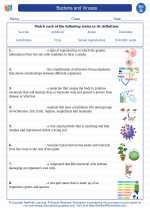Maturation
Maturation refers to the process of physical, mental, and emotional development that occurs naturally as an individual grows and ages. It is an essential aspect of human development and is influenced by genetic, environmental, and hormonal factors.
Physical Maturation
Physical maturation involves the growth and development of the body, including changes in height, weight, muscle mass, and the development of sexual characteristics. It is primarily driven by genetic factors and the release of hormones such as growth hormone and sex hormones during puberty.
Mental Maturation
Mental maturation involves the development of cognitive abilities, such as reasoning, problem-solving, and memory. It also encompasses the development of language skills, emotional intelligence, and social cognition. Mental maturation is influenced by both genetic factors and environmental experiences, such as education and social interactions.
Emotional Maturation
Emotional maturation refers to the development of emotional intelligence, self-regulation, and the ability to understand and manage one's own emotions as well as the emotions of others. It also involves the development of coping mechanisms and resilience in the face of challenges and stressors.
Study Guide
- What is maturation?
Maturation is the natural process of physical, mental, and emotional development that occurs as an individual grows and ages. - What are the factors that influence maturation?
Maturation is influenced by genetic, environmental, and hormonal factors. - Describe physical maturation.
Physical maturation involves the growth and development of the body, including changes in height, weight, muscle mass, and the development of sexual characteristics. - Explain mental maturation.
Mental maturation involves the development of cognitive abilities, language skills, and social cognition, influenced by genetic and environmental factors. - Define emotional maturation.
Emotional maturation refers to the development of emotional intelligence, self-regulation, and coping mechanisms in response to emotions and stressors.
Understanding maturation is important in the fields of psychology, education, and healthcare, as it provides insights into the natural processes of human development and informs approaches to support individuals at different stages of maturation.
[Maturation] Related Worksheets and Study Guides:
.◂Science Worksheets and Study Guides Seventh Grade. Bacteria and Viruses

 Activity Lesson
Activity Lesson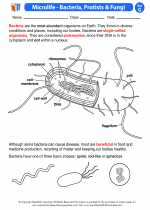
 Worksheet/Answer key
Worksheet/Answer key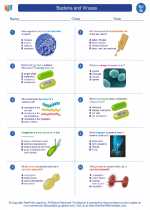
 Worksheet/Answer key
Worksheet/Answer key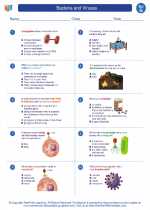
 Worksheet/Answer key
Worksheet/Answer key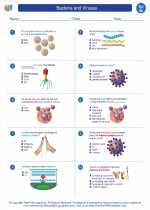
 Worksheet/Answer key
Worksheet/Answer key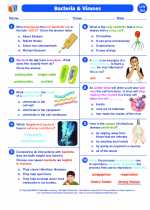
 Vocabulary/Answer key
Vocabulary/Answer key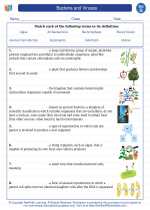
 Vocabulary/Answer key
Vocabulary/Answer key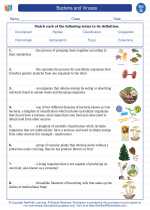
 Vocabulary/Answer key
Vocabulary/Answer key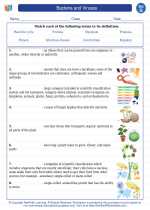
 Vocabulary/Answer key
Vocabulary/Answer key